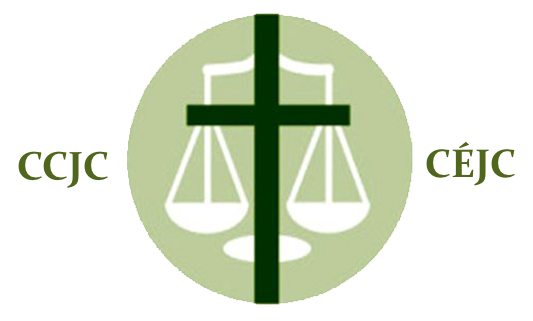Easter Greetings From CCJC
Cliquez ici pour lire le version française
There are days and seasons in our year where we encounter stories that point to important questions of justice. Recall February as “Black History Month,” or even “National Aboriginal Day” (do you know when that is?). Easter, however, is not usually one of those celebrations. Easter leaps happily into view at the end of winter like the proverbial white rabbit, heralding the start of a new round of growth and vitality. But hidden among the eggs and daffodils of the season lies a profound mystery: a story of gross injustice that became the seed for the deeper justice of God.
Easter is a celebration built squarely on a story of injustice—one of the most egregious acts of injustice in human history. In the volatile first century Judea, there was no room for the ministry of the Nazarene. His radical good news drew charges of religious blasphemy and political rebellion. And so an innocent man, a truly good man who healed the sick, welcomed the outcast, and taught mercy, was unjustly accused, convicted in a sham trial, and brutally executed. It is indeed hard to reconcile this heinous story with the springtime beauty and hope of Easter.
However, Christians claim that this death is not the end of the story. His first followers were dumbfounded by the claim that “He is risen!” But soon convinced of its surprising truth, they began to see the larger story of God at work in this miscarriage of justice. They experienced a “deeper Magic from before the Dawn of Time” (to borrow C. S. Lewis’s evocative phrase). They discovered that there is a deeper purpose in God’s workings in this universe—a purpose that injustice, even death, cannot thwart.
Part of that purpose is found in today’s efforts towards restorative justice. This is justice that aims at addressing needs, repairing harm, and rebuilding community. The Church Council on Justice and Corrections has been an active and united voice in Canada for almost half a century, working to shine a light on restorative approaches to justice and corrections. We continue to explore ways of encouraging “restoration,” as envisioned by the work of restorative justice, for those who are involved with Canada’s justice system. For example, CCJC’s Empathy Project continues to be used to help incarcerated people understand, and deal with, the impact of crime on victims. It is our conviction that as people learn empathy, they become more humane, more resilient, more open to healing.
Empathy is where CCJC’s work and the greater work of Easter intersect: for “empathy” signifies, in its etymological DNA, “suffering with.” This is precisely the Christian claim regarding Easter: that God chose to “suffer with” this bruised and broken creation, to plunge into the depths of this sinful world and thereby transform it, in the mystery of Christ’s death. Easter, and all it signifies, is an act of divine empathy.
We at CCJC invite people of all backgrounds and convictions to explore and support the work of restorative justice in your communities. We specifically call on the churches of Canada to remember, and embody, the divine empathy that drives the story of our faith. Let us celebrate the Risen One mindful of the prisons in our midst, whether the physical prisons of our correctional systems, or the emotional and spiritual prisons that proliferate in every home. We invite you into the joy and challenge of working for a justice that restores. And if you would like to support the specific work of CCJC, please visit our website (www.ccjc.ca), or call our office at 613-563-1688 for giving options. You might even consider sponsoring board member John deVries as he runs his Marathon for Healing Justice (part of the Boston Marathon), falling this year on April 17, Easter Monday. What better way to commemorate this holy season, than to invest in the healing of harms and the seeding of hope across this wide country!
Grateful for your support and interest in restorative justice, we at CCJC wish you a blessed Easter.
Randy Klassen, Vice President
The Church Council on Justice and Corrections.
Randy Klassen serves on the CCJC Board of Directors representing Mennonite Central Committee (MCC), which is the relief, development and peace-building agency of six Mennonite denominations in Canada. He is locally involved in prison visitation ministry, as well as Circles of Support and Accountability (CoSA), a program which has deep roots in both CCJC and MCC. At the national level, he connects with the restorative justice work of MCC from coast to coast. He has previously served as a pastor in Alberta, and a Bible college instructor in Saskatchewan (Treaty 6 territory), where he currently lives. Here he’s discovered that Wanuskewin Heritage Park is one of the best places to celebrate National Aboriginal Day (June 21).
